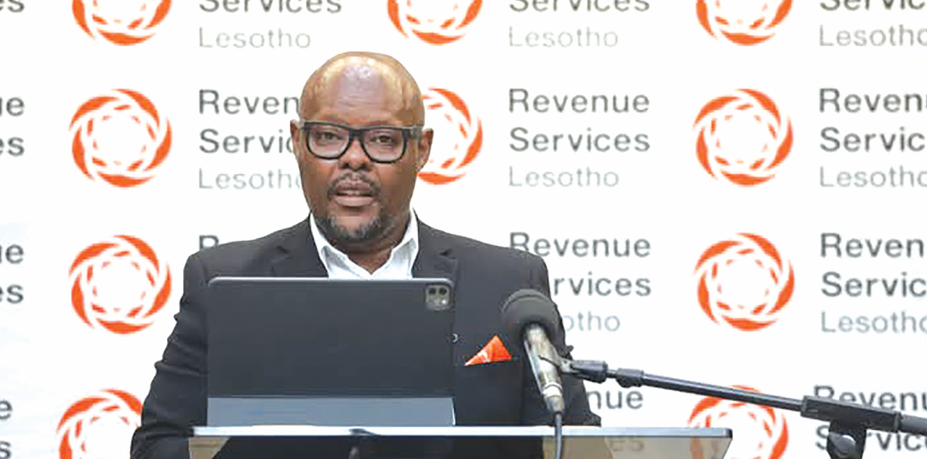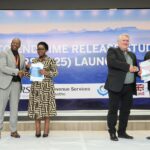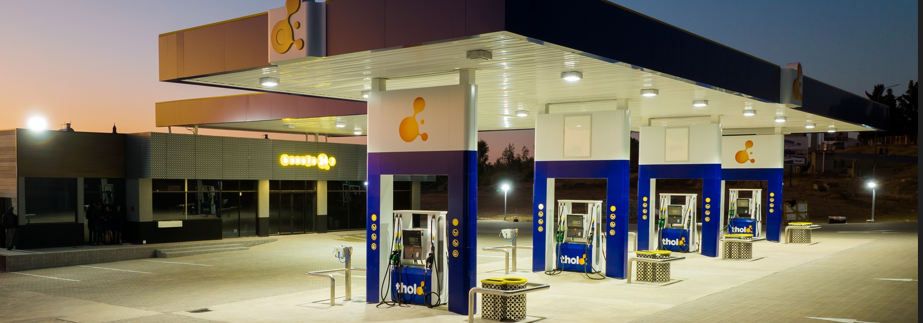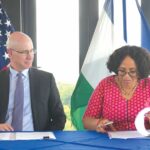In a landmark move aimed at transforming cross-border trade, Lesotho and South Africa have launched the End-to-End Time Release Study (TRS), a joint initiative under the World Trade Organisation’s Trade Facilitation Agreement (WTO TFA).
The initiative marks a significant step in streamlining border procedures, reducing trade delays, and laying the groundwork for future infrastructural developments between the two nations.
The TRS, officially launched this week, is a collaborative effort between the Revenue Services Lesotho (RSL) and the South African Revenue Service (SARS).
It is designed to identify and eliminate bottlenecks in the flow of goods across shared borders, particularly at the Maseru Bridge and Ficksburg border posts, two of the busiest crossing points between the countries.
“The launch of this study comes at a crucial time,” said Tšireletso Mojela, Principal Secretary (PS) in Lesotho’s Ministry of Trade, Industry and Business Development.
“As the blueprint for the One Stop Border Post (OSBP) is still under consideration, the findings from this study will guide infrastructure planning, procedural alignment, and the harmonisation of border processes,” Mojela said.
The OSBP model, once implemented, will allow border officials from both countries to operate in a shared facility, thus eliminating duplicative processes and significantly cutting processing times.
Speaking at the launch, RSL Commissioner of Client Services and Head of Customs, Rakokoana Makoa, stressed the strategic importance of the TRS.
“This study represents a critical milestone in our journey toward modernising border management systems. Both customs administrations remain committed to facilitating trade while collecting the vital revenue our nations depend on,” Makoa explained.
Makoa also expressed gratitude to the World Customs Organization (WCO) for its support through the Coordinated Border Management (CBM) framework, and to SARS for its longstanding cooperation.
“As our only neighbour, South Africa is key to our economic well-being. Over 95 percent of Lesotho’s trade is with South Africa, making this partnership not just strategic, but indispensable,” he said.
SARS Head of Customs Border Operations, Ports of Entry, and Compliance, Beyers Theron, highlighted the role of the TRS in identifying inefficiencies and recommending targeted improvements.
“The Time Release Study is a globally recognised method that measures how long it takes to release goods at the border. It allows us to pinpoint delays and implement solutions that boost efficiency,” he explained.
Theron further commended the efforts of the National Trade Facilitation Committee (NTFC) and praised the region’s commitment to international best practices through the WCO’s Accelerate Trade Facilitation and Mercator Programmes.
The initiative has also drawn praise for its inclusive approach, with the Heads of Border Agencies (HOBA) Forum playing a pivotal role in ensuring institutional coordination and execution.
Their involvement has ensured that the effort is not only effective but also inclusive of the diverse agencies operating at border posts.
Summary
- In a landmark move aimed at transforming cross-border trade, Lesotho and South Africa have launched the End-to-End Time Release Study (TRS), a joint initiative under the World Trade Organisation’s Trade Facilitation Agreement (WTO TFA).
- It is designed to identify and eliminate bottlenecks in the flow of goods across shared borders, particularly at the Maseru Bridge and Ficksburg border posts, two of the busiest crossing points between the countries.
- “As the blueprint for the One Stop Border Post (OSBP) is still under consideration, the findings from this study will guide infrastructure planning, procedural alignment, and the harmonisation of border processes,” Mojela said.

Seabata Mahao is a general news reporter with special focus on Business and Sports. Started working at Newsday in 2021. Working in a team with a shared goal is what I enjoy most and that gives me the motivation to work under any environment leading to growth.









